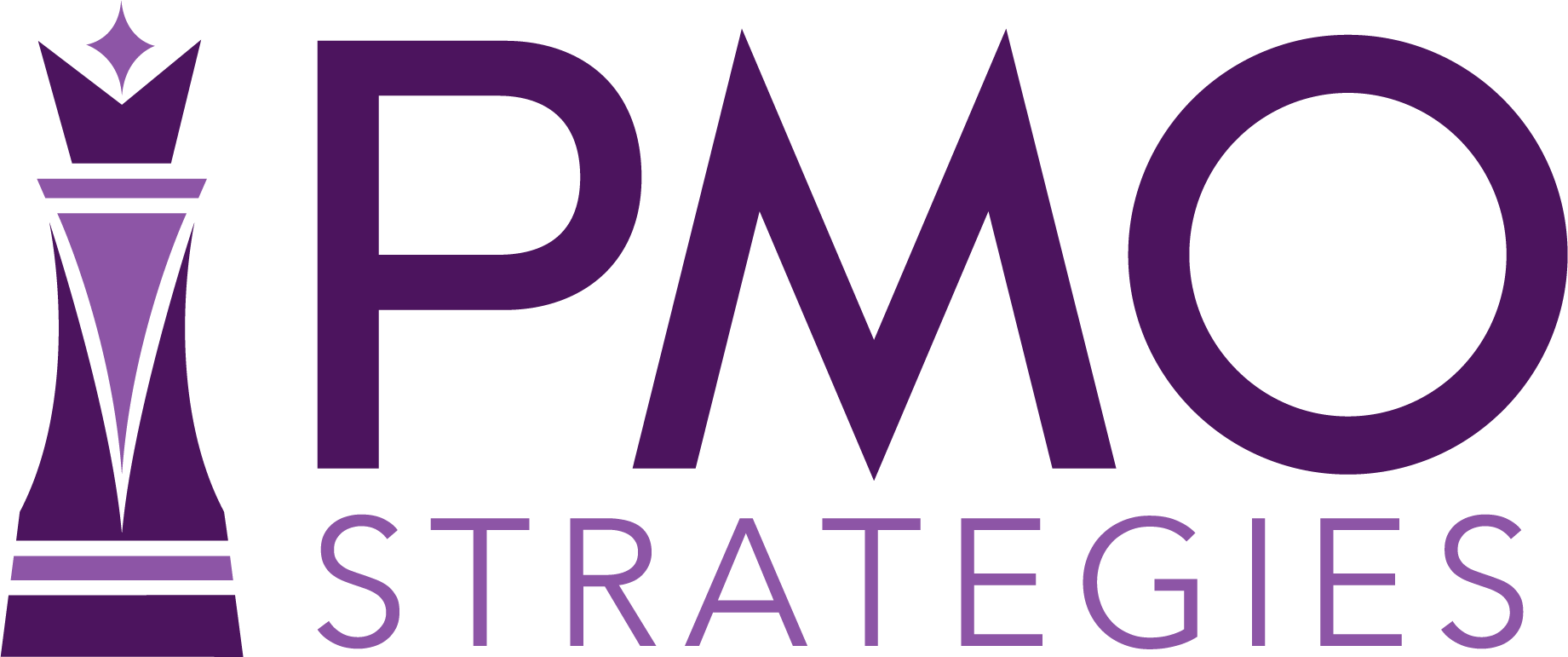The Project Management profession is shifting in some very important ways…are you ready?
The world is seeing an accelerating speed of innovation as problem solver and change happening at an almost frenetic pace. Companies are going through transformations almost as a matter of course and it’s hard to keep up. But this is our golden opportunity, our chance to show just what project managers are made of.
Why do I say that?
Project Management is the MOST equipped profession for driving IMPACT during these times of chaos, accelerated change, and general impatience we have developed globally. We have a unique skill set that has been honed and designed specifically to take these new ideas and transform them into value-based solutions, all while taming the chaos.
But how do we step up to this challenge?
Not by doing things the way we’ve always done them! Many of us have gotten too comfortable and complacent. We’ve chugged along doing our projects, jumping from one to the other, staying heads down on the work in front of us and we could let this golden opportunity pass us by.
Here’s how to prepare yourself for the future of Project Management:
1. Understand that only you can decide to be an IMPACT Driver.
This means deciding to take control of your own career. Don’t wait for your company to send you to a training class or miss out on a great opportunity because your company doesn’t pay for training anymore. More and more companies are not paying for training for their staff or don’t give them access to the resources that are really going to move the needle. Develop your own career plan and seek out opportunities to develop skill sets in job rotations, new opportunities, or training that addresses where you want to go (not where you are), or where they want to put you. Do not settle. You must develop your skills, open your eyes to new ways of doing things, and understand that the status quo will leave you in the dust.
2. Know the difference between performance and value.
There is a three-letter acronym that many of us hold dear: EVM (Earned Value Management). While this is an important key to measuring performance, it doesn’t do anything to tell you about value. How can that be? Yeah, I know. It’s a beautiful irony.
Think about it. EVM tells you a great deal about how the project is performing against the planned schedule and cost constraints, but it doesn’t really tell you if the scope being delivered will generate the IMPACT that is expected. That’s VALUE. HINT: guess what the organization is paying you, expecting you, to deliver?
EVM and other similar metrics are necessary so that we can monitor and improve performance, but this is not the same as measuring, delivering, and realizing IMPACT and value.
You will start hearing more about ROI (Return on Investment) going forward. It’s the new three letter acronym every project manager should be using. It’s the term being used by the business leaders as they develop their business cases and decide which projects will get funded. It’s that promise of ROI that determines what projects are worth the time and energy, and of course, money. It’s also to keep in mind that if an organization is investing in projects, then it stands to reason that an organization is also investing in project managers to deliver those projects.
3. Understand the role of IMPACT Driver.
When you are given budget to do a project, you have assumed a fiduciary responsibility to spend that money in a way that always has the best interests of the investor in mind. Sometimes this means your project should be canceled if it won’t achieve the intended value. There’s no reason to throw good money after bad. You need to put ROI first and worry less about your “baby” being taken from you.
If being over budget and schedule means that the value the project could generate will double, it might be worth the overruns. That’s a business decision you need to prepare the project owner to make – but you need to have the ability/skillset to recognize it and most importantly, be able to communicate it to those who will make that decision. You must be looking for these opportunities and be comfortable sacrificing your perfect project performance record for real value delivery.
4. Understand that projects are the means, not the end.
We spend so much energy and focus on the project and define our own success by how the project performs, “I brought my project in on time and on budget, therefore I was successful” or how thorough our process has become, “We have created 45 new templates this month.”
The organization thinks of projects as investments and is investing in the project and the project manager to drive the business outcome they are trying to derive – the project is therefore a MEANS not the END.
Stop worrying so much about process. I’m not saying don’t have one, but I assure you, the business doesn’t care about metrics related to how many templates you have created or how many steps are in your process (fewer is better here). What they want to know is does that process get me the high-IMPACT outcomes I’m looking for with my investment? Measure outcomes, not templates.
5. Speak their language, not yours.
Sometimes we complain because the “business” doesn’t “get it” when we try to talk to them about project management. We are the ones missing the point.
It isn’t about making sure the business understands project management speak. It’s about making sure you understand how to speak to them in their terms – how to translate “project into business-speak.”
Why is this critical? You must understand the business value and be able to articulate the way your project is going to drive that business value, deliver outcomes that move the needle in the organization, AND COMMUNICATE the outcomes and value. IMPACT Drivers can clearly articulate the value and impact that their project will have on the end consumer.

6. Be a commitment keeper, not just a commitment maker.
With leaders having less and less patience in this fast-paced environment, trust is going to be critical for your success. It’s all too easy to just say yes when your sponsor asks for changes that are going to throw your project off course. You certainly need to look at every change request through the eyes of an ROI-seeker, but you also need to be crystal clear about what you can and cannot do, so that commitments are not just made, but kept. This will build your credibility and ultimately earn you a seat at the table when tough decisions need to be made. They will know they can count on you.
IMPACT Drivers don’t just talk a good game, they deliver.
7. Train for the future, but don’t look for more of the same.
There are so many courses out there that all look the same. They teach you the same steps in a methodology, they emphasize the same old techniques and they are all emphasizing the same things: project success equals business success. Now we know this is not true.
IMPACT Drivers look for new ways to gain the crucial skills that will help them advance their careers, position them for the future, and empower themselves to be organization strategy partners.
8. You will determine the future of Project Management.
No pressure or anything, but each of us must take an active role in determining where we want this profession to go. We can either be the super heroes that drive future transformation or we can sit back and watch as the world changes around us. The choice is yours. It all starts with you. Drive the change you want to see in the world.
Just remember…Project Management is not the end game. It is simply the engine we use to drive IMPACT and now you can become the IMPACT Driver.
Thanks for taking the time to read this article.
Click here to receive these blog posts right to your inbox.
Fill out our one-minute survey if you have topics you would like read more about.
I welcome your feedback and insights. Please leave a comment below.
See you online!
Warmly,









Hey there Laura.
I’ve just been promoted to project management so I am doing some research online and came across your post from the previous one I was reading (http://thinkthyme.com/project-management/how-to-become-a-project-manager).
I came here with the hopes of answering one burning question I have about my new job;
Where do the responsibilities start and finish?
As project managers are we really “responsible for all and everything”. That seems a bit daunting if I’m being honest – can you give me some advice on how to deal with this, please ?
Hi, Sirhc. Unfortunately, there is no hard and fast rule on roles and responsibilities that apply to every situation, every organization, and every person. What I can tell you is that PMs must pay attention to not just the triple constraint when they define project success. We have to ensure that the projects we are doing are in alignment with the business outcomes that they are intended to achieve. This is very manageable and starts with asking Why – and seeking the answer in the business case.
No one is saying that you are responsible for “anything and everything,” but there are things you should be doing, as outlined in the article. Hope that helps!
You may want to check out some of the other 50+ ebooks we have on these topics to help guide you. I would recommend you check out the membership options available to you so that you can go grab all of the resources available to support you. Note that our higher levels have coaching options and even the free level invites you to our IMPACT Mastermind program to get free guidance and support regularly.
Membership: https://pmostrategies.com/membership/
Once you login, you can get access to the Mastermind and other resources.
We’re not responsible for all and everything, but we are responsible of understanding how our doings and delivreables will and do influence (impact) other threads or interactions. The project is what has been agreed, but your influence may be larger and this is why we must keep an open mind along.
Yes, exactly! Thank you, Elisabeth.
Something I kept hearing throughout many projects and conversations is that PMs classify their successes based on “on scheduled and on budget”, even though there is so much more to the success of a project. Yes, we are responsible for ensuring we do not overspend just because, and ensure that we are managing the project the right way but if the client does not likes the deliverable, then it really doesn’t matter how under budget or ahead of schedule we “completed” the project. Just my two cents.
[…] Are you a Project Manager or an IMPACT Driver? […]